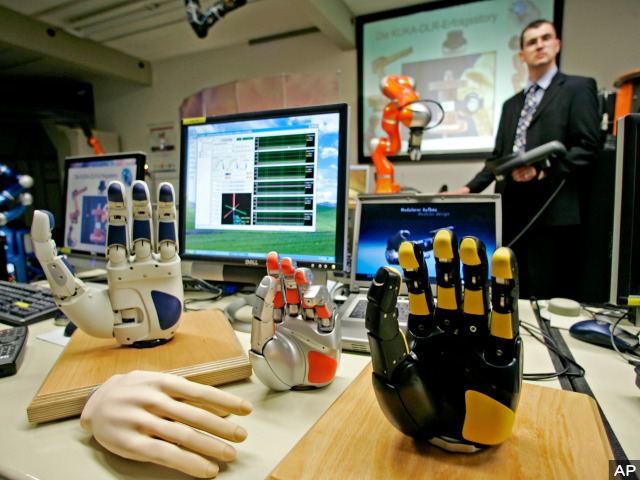The past few years have seen a surging interest in the international scientific movement to “help end human death.” It fears no mechanics and abhors the imperfections of the human body. Transhumanism is snowballing into an international movement aggressively defying human nature and embracing machines.
The current wave of debate surrounding the concept began with The Transhumanist Wager, a novel about the possibilities of transhumanism, by Zoltan Istvan, an author who has openly admitted to believing in the possibilities of transcending thousands of concepts about the sanctity of the human body.
In a piece for the Huffington Post preceding the release of his novel this month, Istvan writes that transhumanism springs from “discontent about the humdrum status quo of human life and our frail, terminal human bodies,” and strives for immortality through the use of science at its most ambitious. At its least ambitious, transhumanists “want to be better, smarter, stronger” by replacing imperfect human parts with perfect machines.
Of course, the idea of using the power of the human mind to piece together better functioning human beings raises a number of metaphysical questions about human nature and the essence of what it means to be a person. Where is the line at which a person has been so thoroughly altered that they no longer wield the same identity?
For transhumanists, it is simply unethical to have the technology to permanently avoid death and not use it. The Institute of Ethics & Emerging Technologies describes the movement as based in the “creative and ethical use of technology to better the human condition.” In one particular piece, the institute describes milder enhancement technologies that transhumanists seek to see in mass consumption: memory and intelligence enhancing computers, Google Glass-like technology that can improve day to day vision and mobility, and improved vision to the point of seeing what is naturally invisible to the human eye. With these technologies, their point is clear.
Where the line blurs is when technology begins to significantly challenge the concept of death, or aid in altering traits about a person that could have serious social implications. How would human existence change if it were possible to upload brains to servers, therefore rendering the brain’s owner immortal so long as the computer was safe? What of technology that could allow a person to radically and rapidly alter her complexion or general appearance to fit her mood? The technology is on the horizon, and yet the debate is only about to begin.
Harvard ethicist Michael Sandel (full disclosure: under whom this author took a bioethics course) struggled with the question almost a decade ago, when the transhumanist movement was in embryonic stages, compared to the push made by supporters like Istvan. “[U]nlike cosmetic surgery, genetic enhancement is more than skin-deep,” he wrote in The Case Against Perfection, suggesting that since moral qualms about human artificial enhancement “verge on theology, modern philosophers and political theorists tend to shrink from them.” Sandel then contends, using much less technologically advanced examples such as cloning and steroid use, that there is an independent beauty to the natural imperfections of humanity that are endangered by the possibility of having them easily remedied. “Appreciating the gifted quality of life constrains the Promethean project and conduces to a certain humility. It is in part a religious sensibility. But its resonance reaches beyond religion,” he concludes.
Sandel was not discussing cryogenics or cyborgism when bringing up these ideas and challenging Istvan’s notion that only a devout person could see a problem with transhumanism. But now more than ever–when these scientific advancements are so far from the political rabble’s eye that has turned other nuanced scientific issues into black and white ones–the tension between theology and science is most strongly felt, and needs addressing most–before the machines catch up to us.

COMMENTS
Please let us know if you're having issues with commenting.